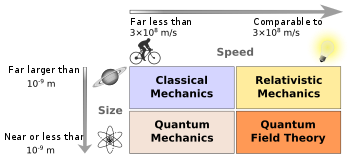In the "particle in the box," I mainly focused on Bohm's use of the term potential as an "enfolded" order or value, that may become explicated in the future.
You did? Where can I read your explanation of Bohms "enfolded order", as it applies to the particle in a box?
Hence the question if the particle in the box has the inherent potential to remain active forever or will there come a time that the quantum runs out of energy?
Tell me what you mean by "potential" in this context, first, then what it means for "potential" to be "inherent" in something? Is there any potential that isn't inherent?
On the question of energy, it sounds like you have the idea that energy can be "used up" in some way. That's not unreasonable. It comes from our everyday experience of extracting useful work from devices and mechanisms. Your car stops running when its fuel runs out. Something in the fuel is being consumed when the car is running. However, from a global perspective on energy, no energy is ever "lost" - it just becomes unavailable for extraction (or to do useful work, like turning the wheels). Specifically, for the car, some "chemical energy" is converted into heat and work (turning the wheels). Eventually, all the heat is outside of the car and no extractable energy is left in the waste-products from the fuel. But all the initial energy is still there in the universe, somewhere. It's just in less concentrated and harder-to-extract forms.
A particle in a box is an idealised system. It is used to show, for example, that the kinetic energy of the particle can only take certain values, not just any old value. Left to itself, a particle in such a box has constant kinetic energy. There is no mechanism for changing the energy. We can complicate things a little, by imagining, for instance, the particle in the box is allowed to absorb or emit photons. If that's the case, then energy can be transferred into out out of the box system, but only in certain quantised amounts.
To summarise: the notion that some system will eventually "run out of energy" requires some mechanism for dissipating the energy. If there is no such mechanism, then the energy will remain constant; it can't do anything else. In technical language, a system that cannot transfer energy in or out is said to be
isolated from its environment. Your car is clearly not an isolated system, because it continuously takes energy in from the outside in the form of fuel and releases energy in the form of heat and exhaust gases.
If so, what happens then? Does the box become empty of energy?
As exchemist explained, the simple model of a particle in a box has a lowest possible energy (often called the "ground state energy"). It
cannot have zero energy; that's not a quantum-mechanically allowed value for the energy. So, in that sense, it is impossible for the particle to be "empty of energy", in this scenario.
What intrigues me is the expression "infinite" when explaining a simple concept. To me, that sounds extremely complicated.
You're thinking of the "infinite potential well", I assume.
Remember, this model of a particle in a box is, in a certain sense, the simplest possible first model of such a system. The "infinite potential well" refers to the
potential energy, which tells us about the forces in the particle. In this model, the particle has
no force on it, when it is in the box. However, this box must have walls to "keep the particle in". So, we model those walls as exerting an effectively
infinite force whenever the particle approaches them. This ensures that the particle can't bust out of the box or "jump over the wall", or similar. The infinite force at the walls translates to infinite gradient of the potential energy curve at the walls. That means the potential energy is zero everywhere in the box, except at the walls, where it goes "instantly" to infinity.
The important point is that all of this is a
mathematical model. It is not intended to be an accurate model of what actually happens at the walls of a physical box. If we try to model that, the infinities disappear, but in some other respects the model has to become much more complicated.
The model's usefulness is that it exhibits broad features and behaviours that are the same as those exhibited by real physical systems. It provides insight into how and why quantum mechanics "works", in a simple way.





